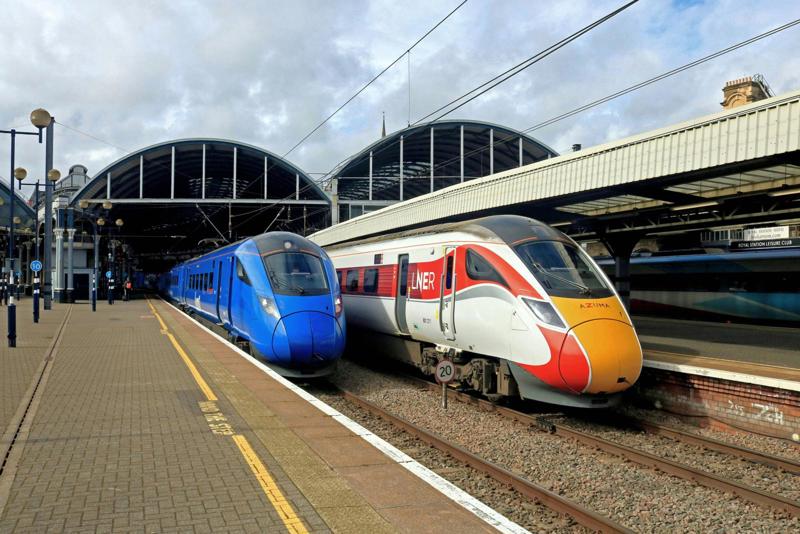
LNER’s revenue will be at least £1.1 billion lower over the next decade because of open access operations, a new report has said.

LNER’s revenue will be at least £1.1 billion lower over the next decade because of open access operations, a new report has said.
Research seen by Department for Transport (and by RAIL), has said the main East Coast Main Line (ECML) operator’s revenue over the last 20 years would have been at least £562 million higher if Grand Central, Hull Trains and Lumo were not operating alongside it.
Currently Grand Central runs to Bradford Interchange and Sunderland, Hull Trains serves Hull and Beverley, while Lumo operates to Newcastle and Edinburgh. All three plan to expand their services in the coming years.
The study, carried out by consultancy firm Jacobs, focused on a series of stations served by both LNER and at least one open access operator. They are Grantham, Retford, Doncaster, Wakefield, York, Northallerton, Newcastle, Morpeth and Edinburgh.
It calculates that approximate open access revenue from those stations between 2006 and 2025 is £628.2m.
During that time Jacobs concludes that LNER would have taken an average of 89.5% of that revenue if its rivals did not exist, meaning it has missed out on £562m of revenue.
Jacobs' report does not mention track access charges by any operator.
FirstGroup has long claimed that its open access services (Hull Trains and Lumo) have grown the size of the ECML market.
In its own report, published in January, it said that demand for Lumo had increased by 30% since its launch.
“In the 12 months to September 2024, compared to 2018/19, overall usage of the East Coast Mainline rose 18%, including 11% growth at LNER, against a wider industry fall of 4%,” FirstGroup’s report said.
“This shows demand is rising overall, fuelled by open access, attracting new passengers to the railway, rather than existing passengers moving from one operator to another.”
FirstGroup has argued that Lumo’s fares are between up to half the price of other operators, and claimed it has attracted customers from road and air markets.
The report focuses on TOC-specific ticketing, and does not include split ticketing. It also assumes LNER would run exactly the same service without its rivals existing, but says there would be “fewer timetable constraints”.
It suggested that LNER may have begun operating additional Newcastle-London services without open access operators, and established different stopping patterns.
“If the timetable were the same, then with less congestion on the network it is likely there would be some difference in operational performance.
“It is likely that LNER revenue (or, at least, surplus over costs) would be higher as a result. This would broaden the scope of the impact to more markets (beyond those with direct OAO competition).”
The report also assumes there would be capacity to accommodate open access passengers onto LNER services, but it would only be true on some occasions.
At present there are four open access proposals to serve new routes via the ECML; FirstGroup wants to extend its Lumo service to Glasgow Queen Street and run between London and Sheffield via Retford using its Hull Trains brand, while Grand Central has set its sights on a direct London-Cleethorpes service (which would couple with an existing Bradford service and split at Doncaster), as well as a Newcastle-Brighton operation that would run along the ECML as far as York.
Grand Central, Hull Trains and Lumo also want to add at least one additional service on their routes to Bradford, Hull and Newcastle respectively.
A Lumo spokesperson said: “Open access operators deliver trains to under-served routes, offering passengers choice at competitive fares. Passenger surveys routinely report very high satisfaction levels, and open access operators are giving customers new travel options and driving demand, paying their own way without a penny of public funding.”
Meanwhile, a government source told RAIL: “This government will get the best deal for taxpayers and passengers, who have for too long footed the bill for a broken railway.
“We are pressing on with landmark reform of our trains. Great British Railways will sweep away the mess from years of neglect and sticking plaster solutions. GBR will end timetable chaos and the over-reliance on rest day working, and our passenger watchdog will tackle day-to-day frustrations to give passengers the certainty and reliability they deserve.”
Login to continue reading
Or register with RAIL to keep up-to-date with the latest news, insight and opinion.

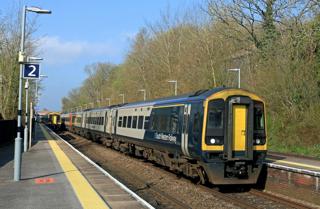
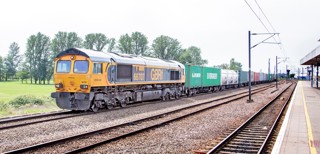
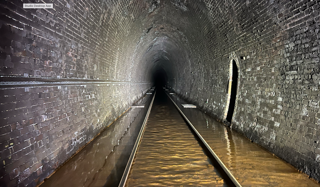
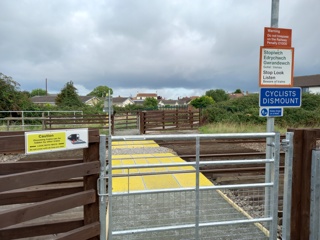












Trackrenewal2000 - 12/05/2025 08:08
Open access has been a great success so watch this Goverment trash it in a couple of years